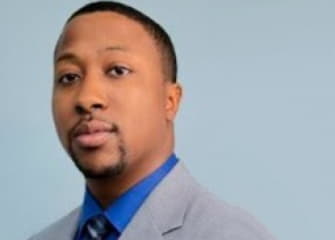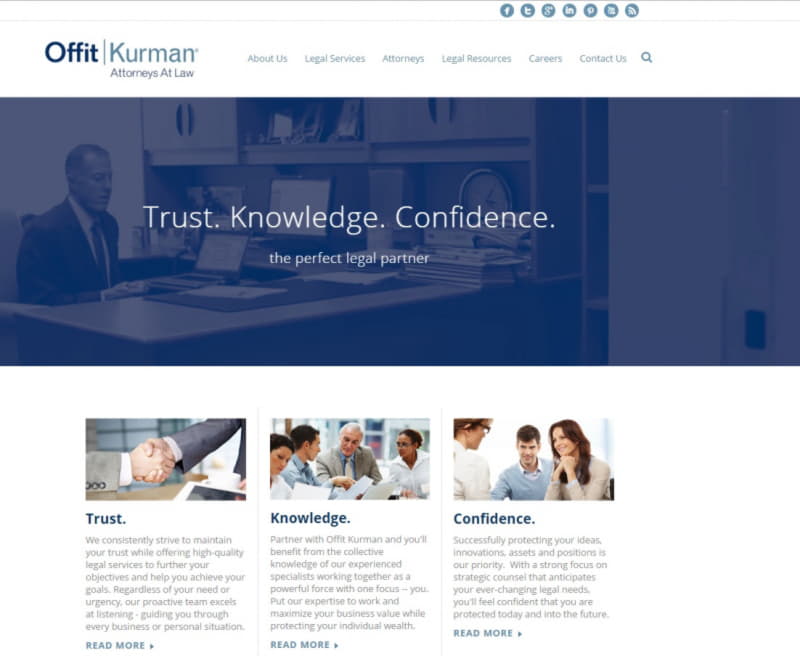
Anthony Lawrence
Click here for Part II, Part III & Part IV
Ensuring and enhancing cybersecurity for mission-critical operations in defense and private enterprise
Anthony Lawrence is the founder and CEO of VOR Technology, a cybersecurity firm in Hanover, Maryland. Established in 2012, VOR Technology is a certified Service Disabled Veteran Owned Small Business (SDVOSB) that provides defense intelligence and technology solutions to national security and private enterprise clients. The company has expanded dramatically since its inception, earning inclusion on the Inc. 5000 list of the Fastest Growing Companies in America for 2016, and—most recently—growing through the acquisition of Sintel Group Inc.
For this interview, Tony spoke with Offit Kurman Business Law and Transactions Practice Group Chair Michael N. Mercurio, who helped facilitate the Sintel acquisition.
MIKE MERCURIO: Tony, I’m going to start with your early days. Tell us a little bit about where you grew up, and is there an experience or person that you attribute to your entrepreneurial spirit?
TONY LAWRENCE: I grew up in Central Florida—in Lakeland, Florida, specifically. Lakeland is not a very tech-savvy environment—not much technology going on. Basically, they’re living as if they’re in the 1970s. But I was very into technology, and I came from a disadvantaged background. We were homeless coming up, really didn’t have access to any technology, but I was still for some reason interested in it, so joined the military as a way to get away from where I was raised. And as soon as I got into the military, I was involved with technology.
MIKE MERCURIO: Why the Army then, as opposed to another branch of service? And how did you get into cybersecurity?
TONY LAWRENCE: It’s a funny story. I joined the military shortly after 9/11. The twin towers fell, and I definitely wanted to contribute to the fight against terrorism. I was 16 when I joined the military. They started a special program that would allow kids still in high school to join, so I signed up immediately. My parents signed as well. That really got me involved into technology and opened up my mind to other opportunities.
MIKE MERCURIO: Tell us a little bit about your transition to the NSA. I understand you were handpicked for a position—please elaborate.
TONY LAWRENCE: When I joined the Army, I was involved in several different fields. I was Eleven Bravo, you know, Infantryman. I did very, very well in my tests, and they said, “Private Lawrence, you have an opportunity here to be involved in what’s now known as cybersecurity.” I got involved early on, since I scored so well on tests, I became attached to several Special Forces elements. Back in 2008, I was deployed to Iraq and Afghanistan conducting what is now known as cyber operations. When I stepped on the ground, everyone else was much older than me. Everyone else was in their 40s, 50 years old, working on computers, et cetera. I was the only one that knew anything about Facebook, Twitter, or Instagram, so I developed many of the TTPs currently being used by US Cybercom today.
Because of that deployment, I was invited to the Pentagon to brief the Secretary of Defense and other senior military officials on what we were doing in Iraq and how they can utilize cyber capabilities in a conventional fight. Shortly after I briefed them, I went to work for the former Director of NSA, General Alexander. General A was great. I worked very closely with him and Chris Inglis. They opened my eyes up to how important the intelligence community is, and that led into me starting my own small business to support the intelligence community and the government in the fight against terrorism and against cyber warfare.
MIKE MERCURIO: I want to move VOR in a second, but before I do, what was the most rewarding about working for the NSA, or working for the government—period?
TONY LAWRENCE: It was very interesting working for the government. You know, we all go to the DMV and see things work slow, and that doesn’t change when you go to other places in the government, but the thing about the National Security Agency: working there, they have the most unique mission out of anyone in our country. Snowden came out and said some very negative things about NSA, and I could tell you upfront that majority of what he said about NSA collecting on US individuals is all lies. NSA does not do anything like that. They specifically focus on foreign individuals and they collect information on foreign targets, but those individuals are trying to harm us here in the United States. That’s all they do. I was very involved with what we’re doing in the op pod at NSA because they have such a huge mission and they’re able to accomplish it with very little funding. They’re doing a great job—I think so.
MIKE MERCURIO: It sounds like you had a great career, great thing going with the government. Was there an inflection point? Why did you decide to go out in the private sector and start VOR?
TONY LAWRENCE: That’s a funny question. When I was working for the Director, I was still in the military—E-5 in the military—and my conventional military leadership wasn’t very supportive of cybersecurity at the time. They didn’t know what cybersecurity was—they didn’t understand it. All they understood were boots in the grounds, tanks, helicopters, et cetera. Here I am working with General Alexander and we’re pushing for cybercom—Big Army didn’t like it, so I came down on orders to become a drill sergeant in Fort Leonard Wood somewhere, doing a non-technical job. As soon as I came down on those orders to become a drill sergeant, I decided it was time to go. I had spoken with General Alexander about starting a small business prior to that, and he was very supportive. Tou know, he now has his own company called IronNet Securities, but he and Chris Inglis gave me tons of support. I jumped out of the military with no money, with nothing, and I was able to get something going. That’s how we are what we are today.
Connect with Anthony on LinkedIn
Sponsored by:
ABOUT OFFIT KURMAN
Offit Kurman is one of the fastest-growing, full-service law firms in the Mid-Atlantic region. With over 120 attorneys offering a comprehensive range of services in virtually every legal category, the firm is well positioned to meet the needs of dynamic businesses and the people who own and operate them. Our eight offices serve individual and corporate clients in the Maryland, Delaware, New Jersey, and Northern Virginia markets, as well as the Washington DC, Baltimore, Philadelphia, and New York City metropolitan areas. At Offit Kurman, we are our clients’ most trusted legal advisors, professionals who help maximize and protect business value and personal wealth. In every interaction, we consistently maintain our clients’ confidence by remaining focused on furthering their objectives and achieving their goals in an efficient manner. Trust, knowledge, confidence—in a partner, that’s perfect.
You can connect with Offit Kurman via our Blog, Facebook, Twitter, Google+, YouTube, and LinkedIn pages. You can also sign up to receive Law Matters, Offit Kurman’s monthly newsletter covering a diverse selection of legal and corporate thought leadership content.
MARYLAND | PENNSYLVANIA | VIRGINIA | NEW JERSEY | NEW YORK | DELAWARE | WASHINGTON, DC


Edwin Warfield, CEO of citybizlist, conducts the CEO Interviews.
If you're interested in reaching CEOs, please contact edwin.warfield@citybuzz.co
Connect on LinkedIn
















